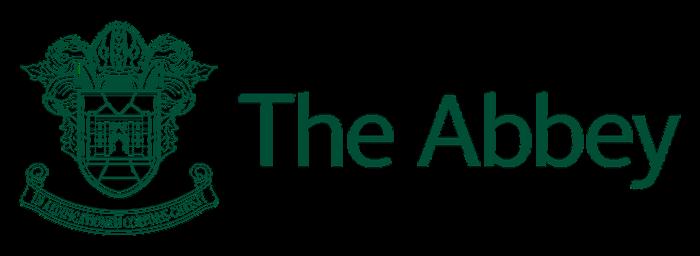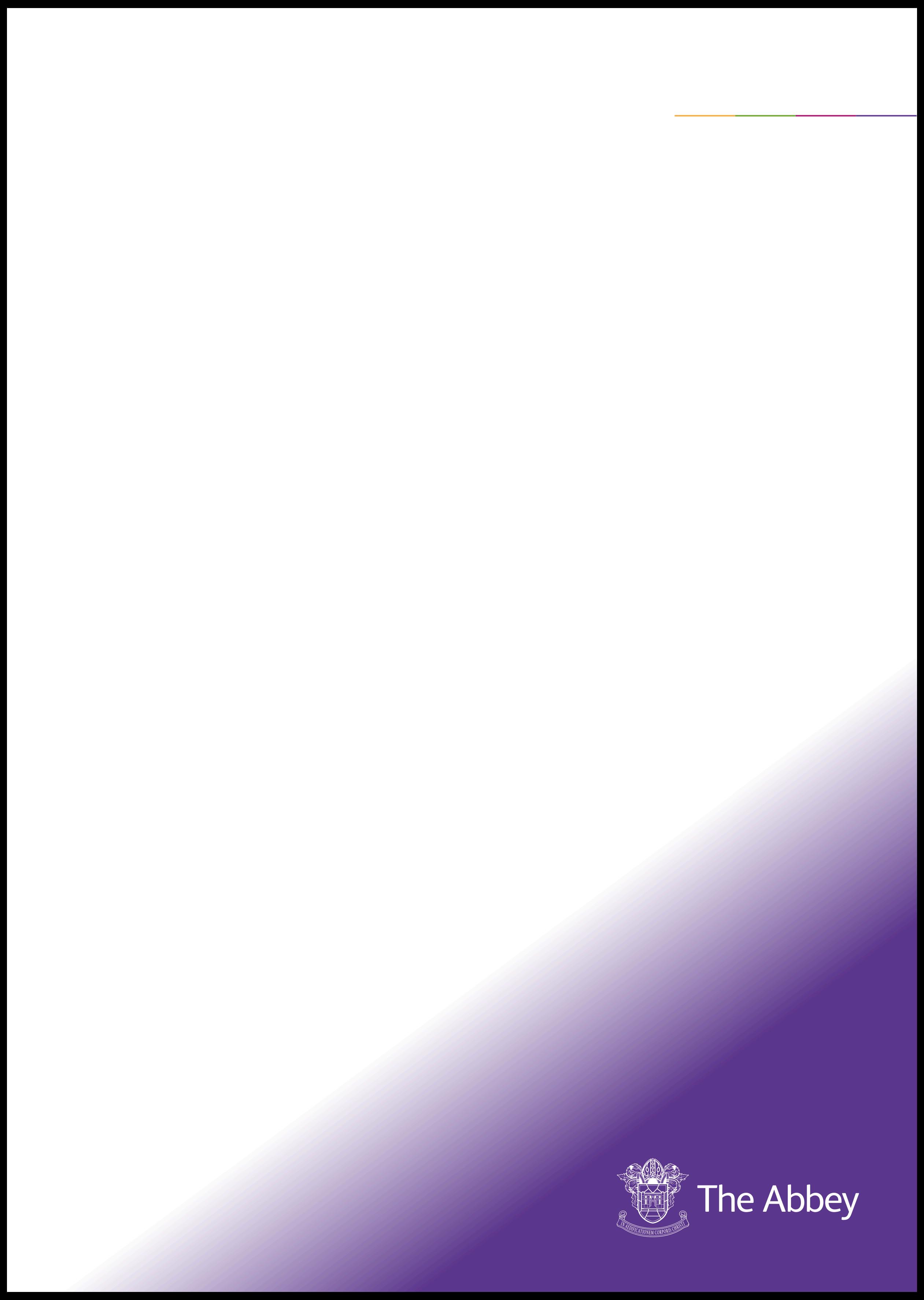
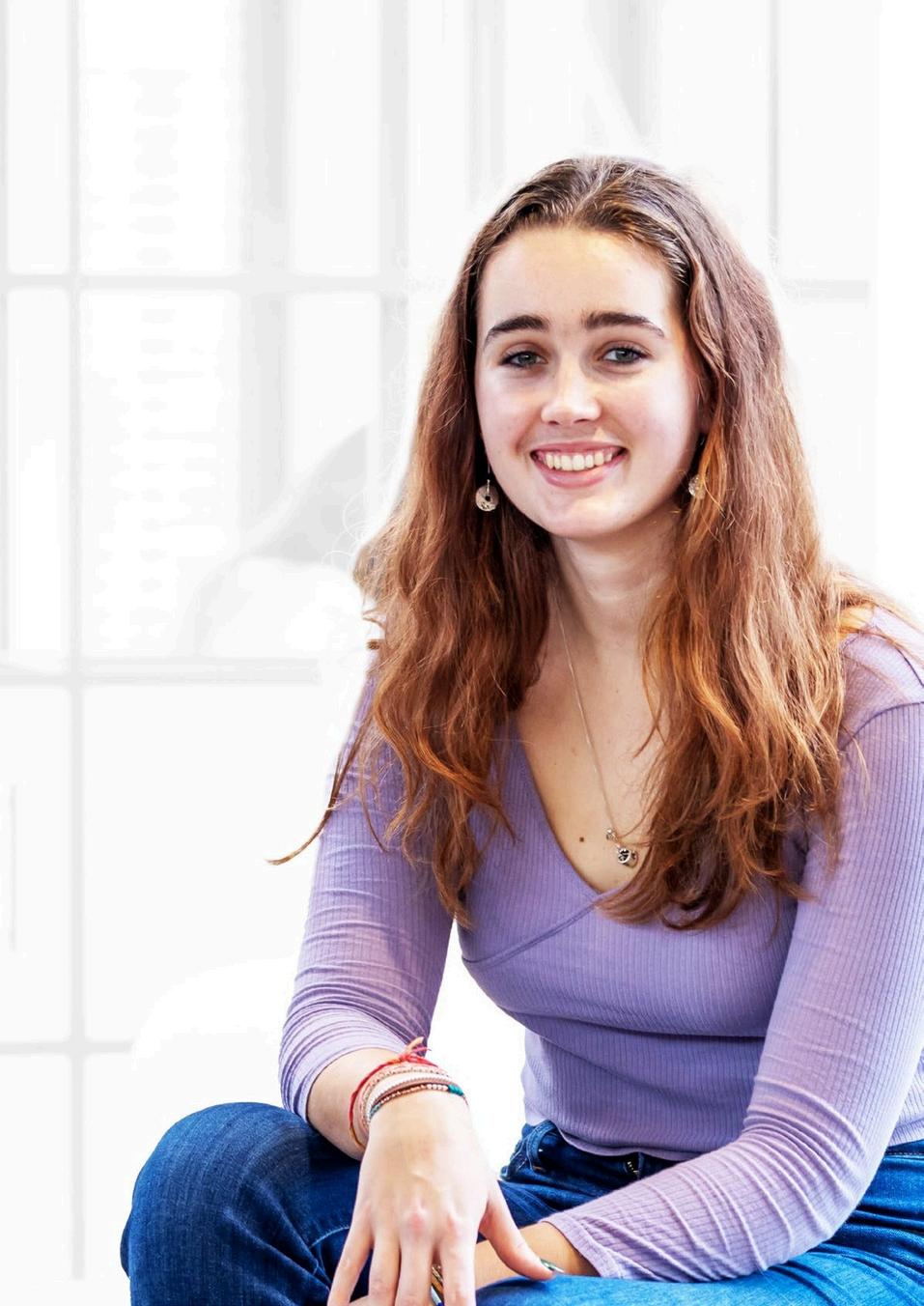



Welcome
Sixth Form Centre
Study options
Joining Sixth Form
Outside the classroom
Support and care
Leadership
Life after Sixth Form
Results
Destinations
Art, Design & Visual Arts
Biology
Business Management
Chemistry
Classical Civilisation
Classical Greek
Computer Science
Drama & Theatre
Economics
English Literature
Extended Project Qualification
Food Science & Nutrition
French


Sixth Form will probably be the best experience of your school career At The Abbey you will be part of a bustling, energetic and purposeful environment Students are ambitious and motivated: it is a place where bright young minds work together to achieve academic excellence every day.
Mrs Charlotte Hart
Assistant Head - Director of Sixth Form
W E L C O M E




Our new Sixth Form Centre opened in September 2023, with students now benefiting from a state-of-the-art, spacious environment across three floors

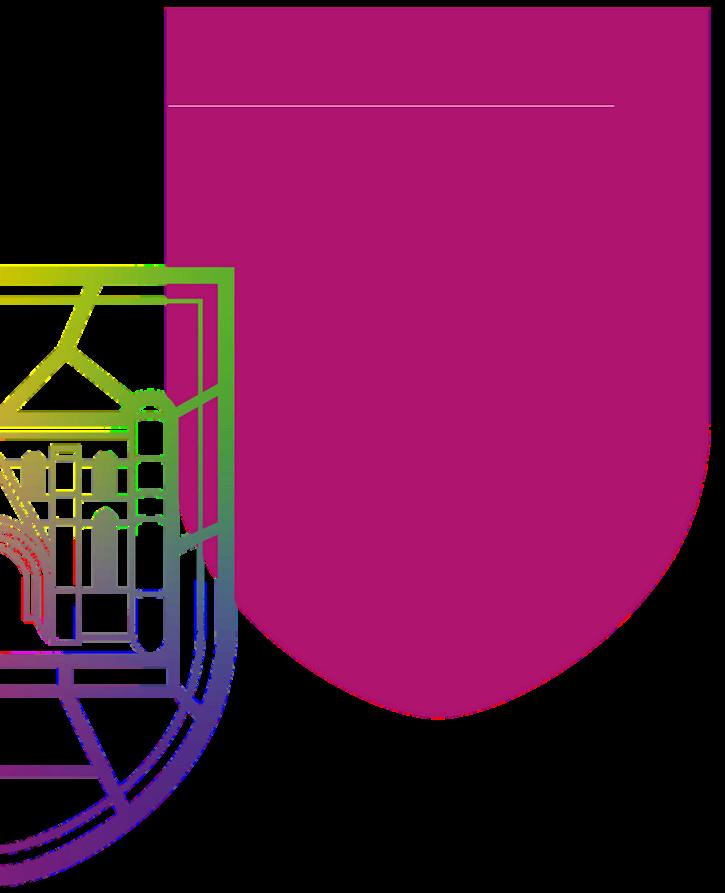

In the Sixth Form you will study The Abbey Pathway.
The most notable aspect of education at The Abbey is the focus on self-motivation, curiosity and genuine enthusiasm for learning Students read widely, engage in class discussions, and pursue activities beyond the syllabus in their own time The level of interest and passion is really special Students take joy in their learning, and that’s evident every day in the way they go about their work
The Abbey Core (everyone studies)

The Abbey Pathway comprises a core experience for all students and an additional programme, The Abbey+, which enhances and enriches the core. Above all the combination provides personalisation and freedom of choice, which has always been the hallmark of the Abbey Sixth Form experience: each student will follow the pathway that suits them
The Abbey+ (you can also study)
P T I O N S

S T U D Y O P T I O N S






O I N I N G S I X T


Your journey to Sixth Form is a hugely important part of your journey through school We want everyone to feel welcome, prepared, secure and happy in their transition to Sixth Form, whether they are coming from Year 11 at The Abbey or joining us from elsewhere
Welcome to Sixth Form Day: all students come together after GCSEs for a day to get into the groove of Sixth Form, and make friends
Induction Day: come in one day before the rest of the school arrives to meet your tutor, orientate yourself in the Sixth Form Centre and get pre-term admin sorted
Team Building Trip: it’s important that you take time out to enjoy yourself, so at the start of term we head offsite to enjoy the company of friends in a more relaxed setting
New Students Tea Party: if you are new to us in Year 12, this is an opportunity to get together with other new students and share your experiences of the first few weeks over tea and cake - we all love cake
Movie and Pizza Night: our final Induction Activity You, friends, a great movie, a comfy sofa, pizza, popcorn and sweets enjoy!
O U T S I D E
T H E C L A S S R O O M




There is so much for you to get involved with beyond your studies. Every day is busy with clubs, activities, talks, leadership opportunities and much more besides
Art, drama, music and sport are huge in Sixth Form We run a major school show every year – it alternates between a musical and a Gym and Dance Spectacular The other annual highlight is the epic wholeschool House Music and Drama: HMAD, where Sixth Formers lead a party of performance and celebration for the whole school But in and among the big events there is always the chance to take part in a show, do a rehearsed reading, set up an ensemble, perform in a concert, get out onto the courts
The same is true for clubs Some are massive: Gold DofE, for example, or our enterprise schemes We run Tycoon and our own Social Enterprise Programme in partnership with Reading School and Henley School of Business Others might be tiny: a few students with a shared interest, some cake, plenty of laughter If you have a passion and there is no club yet, in Sixth Form you can just start it yourself or with friends – there is always a teacher who will advise, guide and help you out
Meanwhile there are lots of trips, from optional sign-up expeditions halfway around the world, to day events and the Year 12 residential Highlights include the Physics trip to CERN, the Languages trips abroad, the Economics trip to Amsterdam, music tours, ski trips and many more
What makes Sixth Form so different from the rest of the school is the focus we put on socialising outside of class Our students work hard but they also play hard!
Whether it’s heading to the theatre to see world class musicals like Hamilton, Wicked or Six, or having a pyjama party in the common room after hours, we love to hang out together and have fun
Throughout the year we host socials and activities with Reading School, our partner boys’ school, including quizzes, BBQs and BakeOff challenges
The year is topped off in Year 12 with a residential trip to a university city Recently we have been to Bristol, with students completing a treasure hunt, showcasing their skills with some amazing karaoke and culminating in a visit to the university itself
For Year 13, the event of the year is the Leavers’ Ball, an amazing occasion for all students to celebrate the end of their time at The Abbey Dressed to impress, the dance floor is always buzzing and the students top off the night by presenting awards that raise a smile
Working in partnership with other schools is a key priority for us because in Sixth Form students broaden their horizons and begin to look outward We have wonderful partnerships with a range of local schools, including Reading School, Kendrick School, The Holt and many more besides
Activities range from joint social events to extracurricular activities like Poetry Society to future-facing campaigns and careers events like our flagship Advocating Girls programme with five other girls’ schools
There is something for everyone
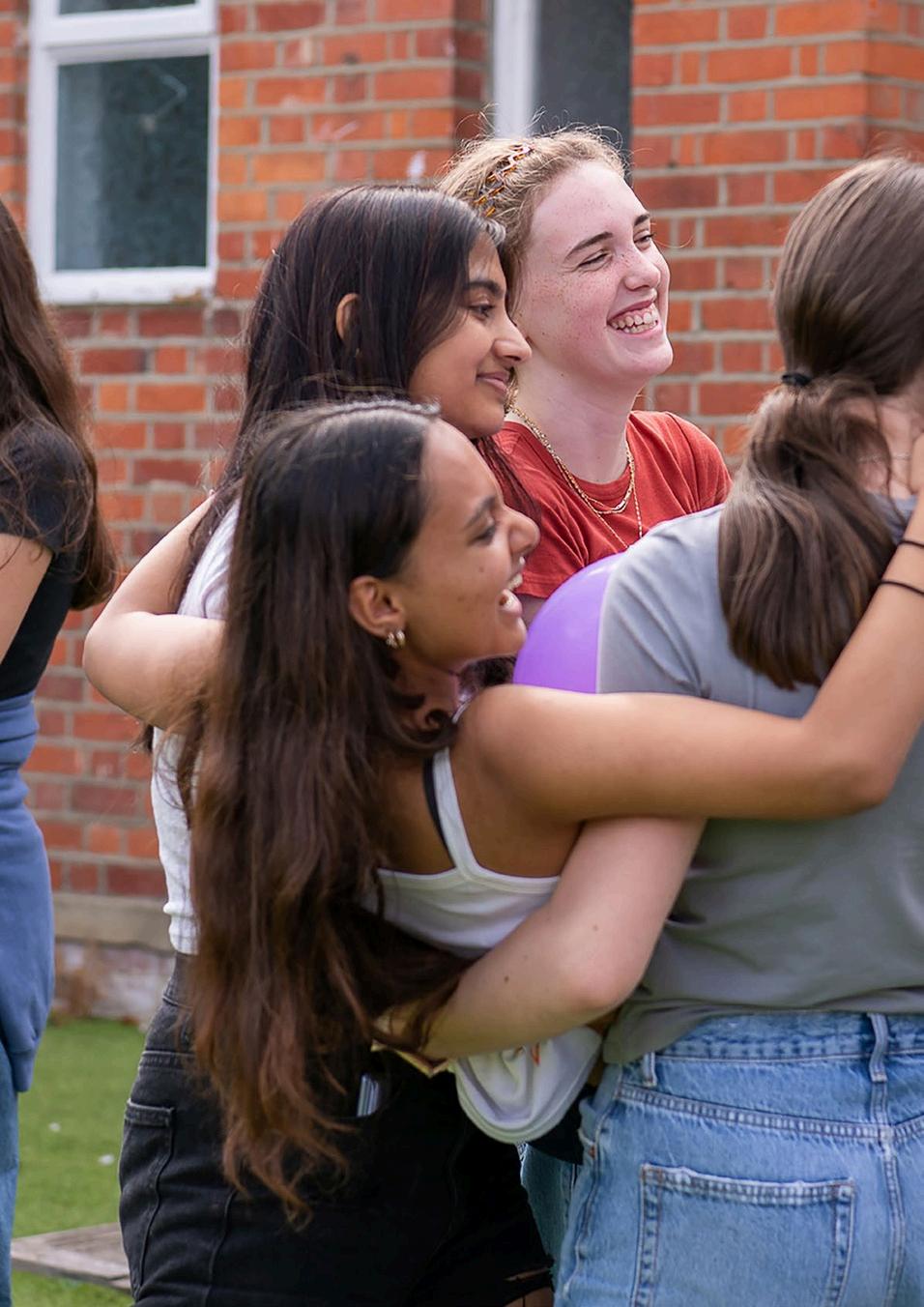

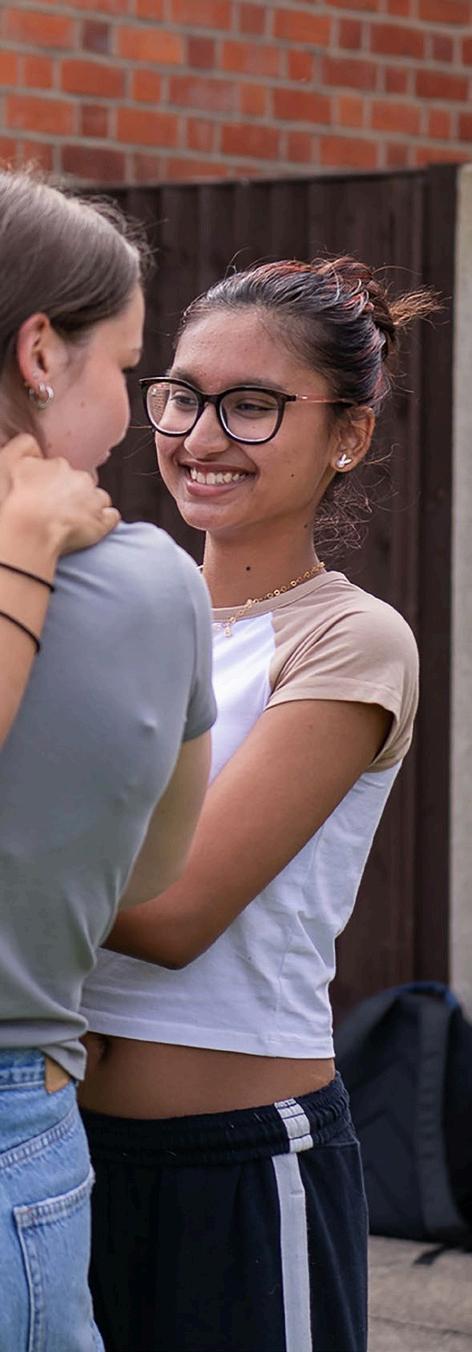


E A D E R S




A key benefit of The Abbey Sixth Form is the leadership opportunities that it presents Our Sixth Formers really are the leaders of the school In Year 12 they run the lunch queues every day, take visiting families on tours, act as peer mentors to younger students, and give up their time to help run events such as our entrance assessment, scholarship days and curiosity clubs We are always wowed by the kind and generous way in which they lead, interacting with our youngest students and visitors to make everyone feel comfortable and happy. There is nothing more heartwarming than seeing an 11-year-old being guided by a 16-year-old, smiling and having fun.
I F E
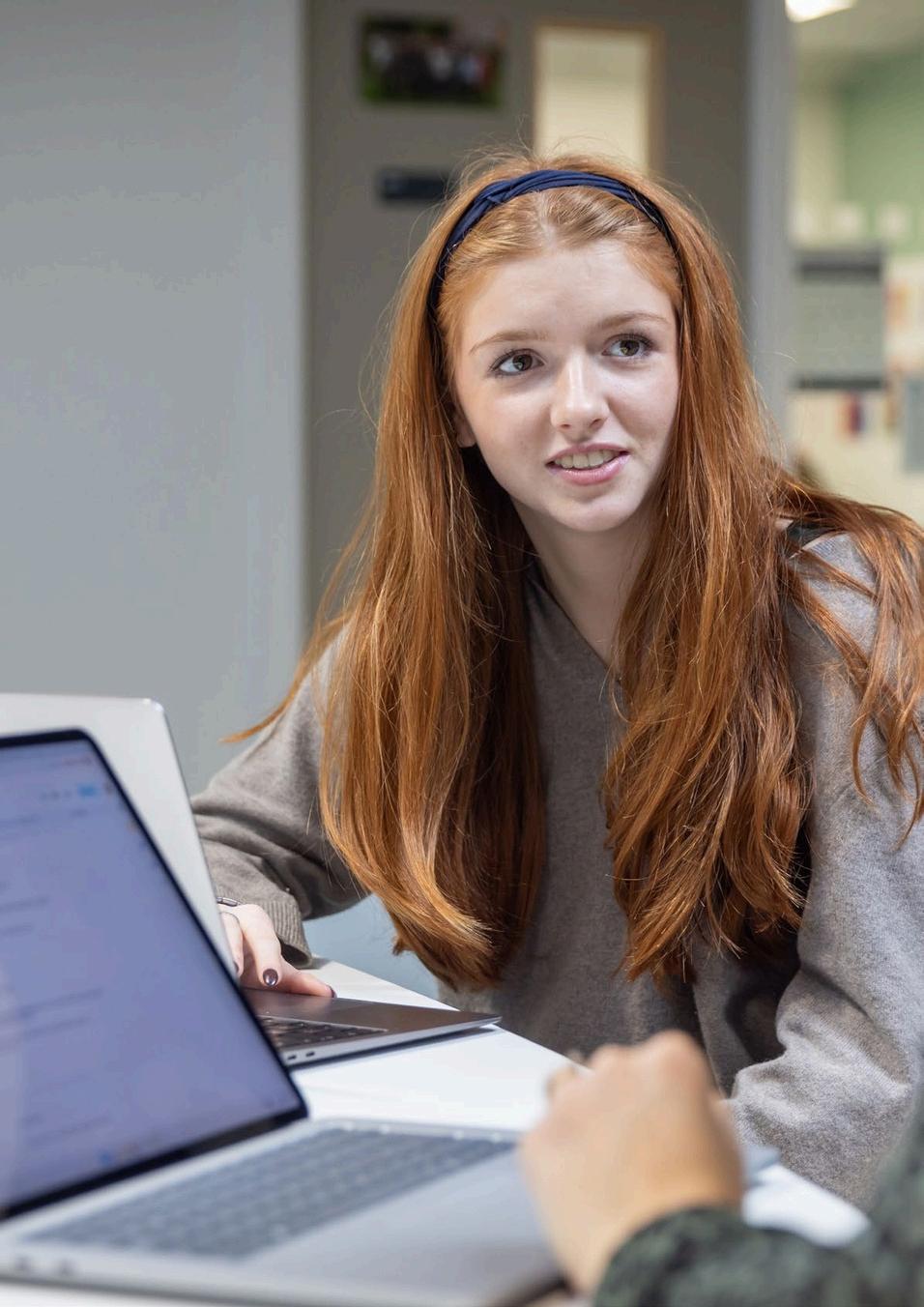



University preparation is a huge part of the Sixth Form programme We have fantastic support in place for every single student, and each year our students are rewarded with wonderful university offers

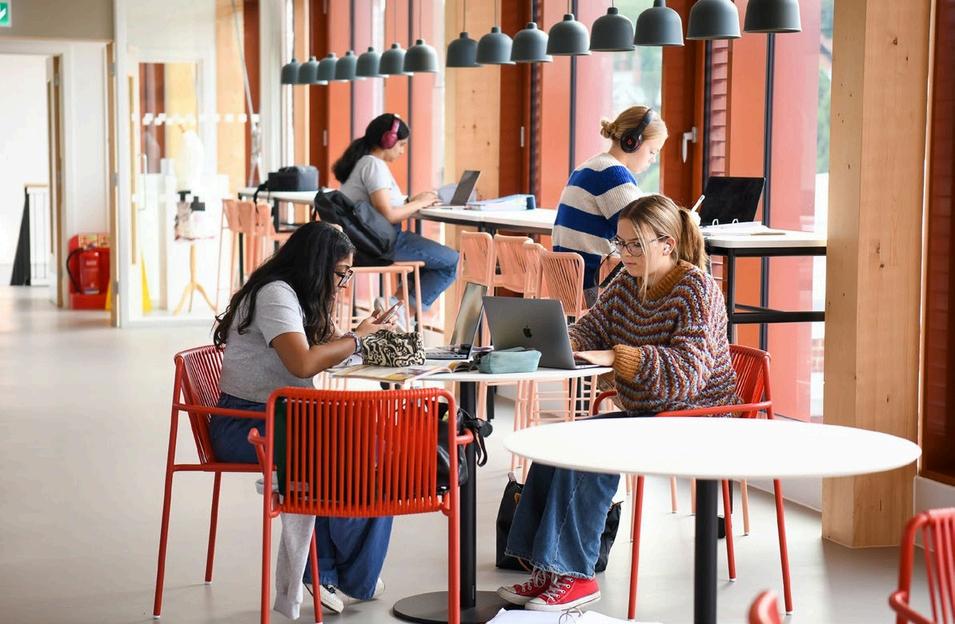


A Level: Three-year average of public examination results (2023-2025)
entries A*- A 55.9% A*- B 82.9% A*- C 94.4%
R E S U L T S

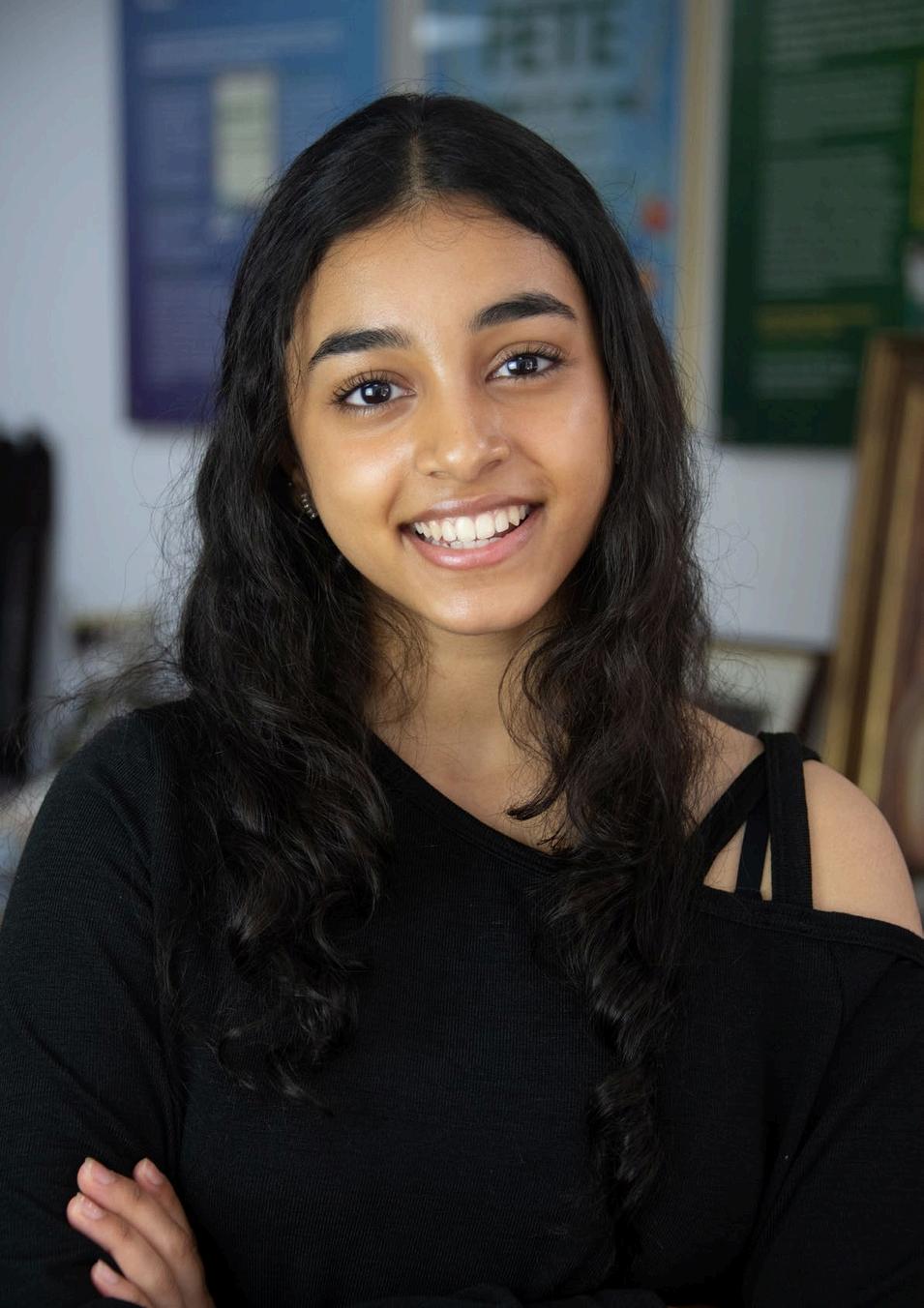


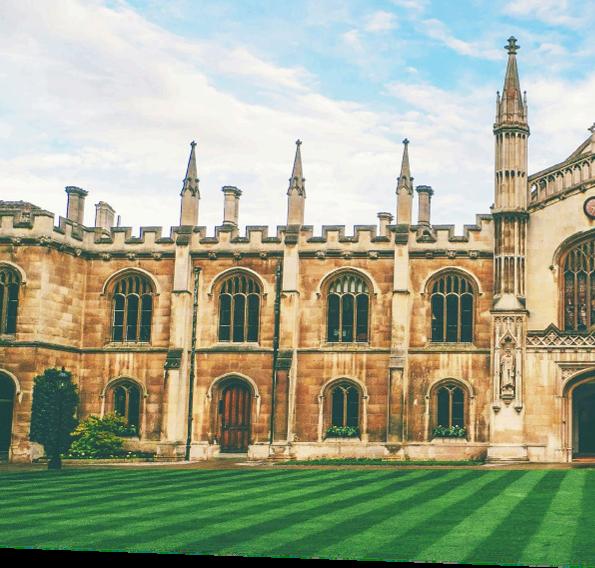
Top choices

























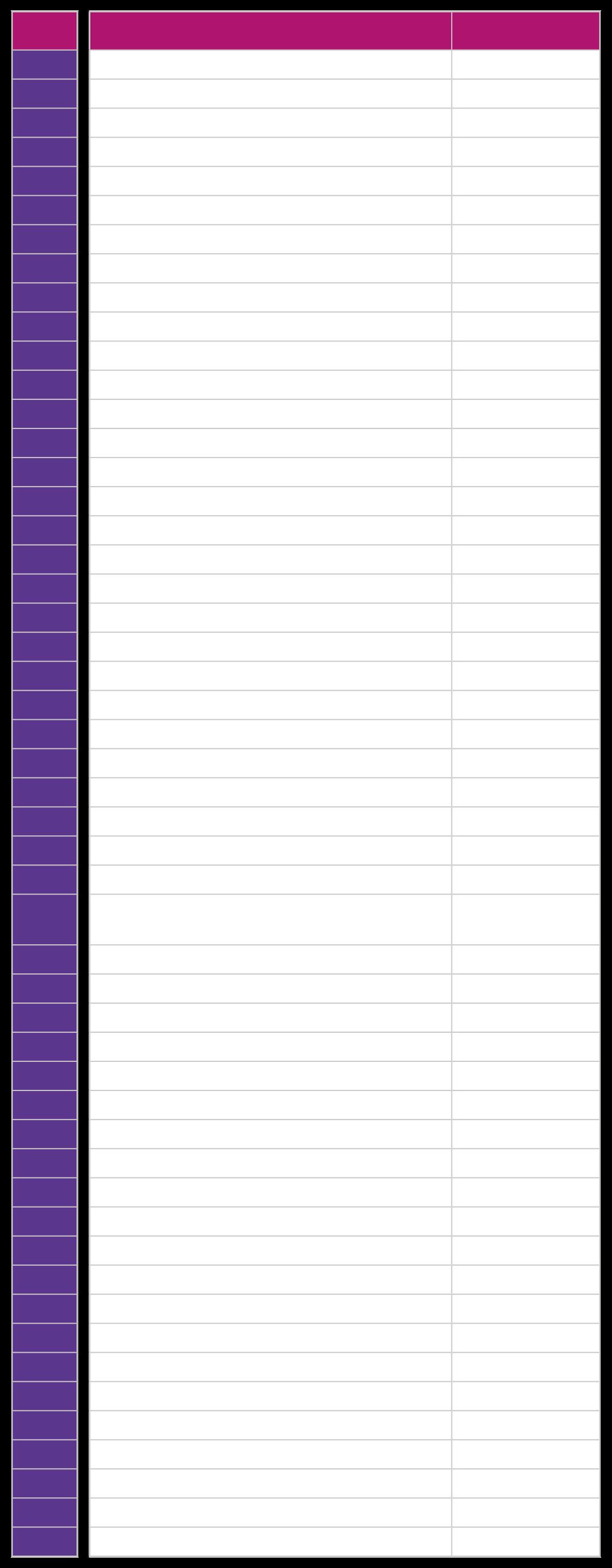

D E S T I N A T I O N S

Turn over to find out more about the exciting A Levels currently available At the back of this booklet you will find a table of subjects and whether they are offered at A Level, AS Level or a Certificate E X C I T I N G S U B J E C T S T O C H O O S E F R O M


Exam Board: AQA - Exam Code: 7202

60% - coursework
40% - exam A Level AS Level
I N E A R T
assemblage
I love every aspect of the Fine Art A level, from testing the limits of materials to exploring the depth of complex concepts The environment during class is fun more than anything and feels like a great place to discuss and develop thoughts and ideas There’s a great amount of freedom when choosing your project but so much support when developing it so you can create beautiful outcomes that truly encompass your concepts

ART & DESIGN: 3-DIMENSIONAL DESIGN
Exam Board: AQA - Exam Code: 7205

3D I M E N S I O N A L D E S I G N


- coursework

60% - coursework
40% - exam A Level AS Level
T E X T I L E D E S I G N
Exam Board: AQA - Exam Code: 7202



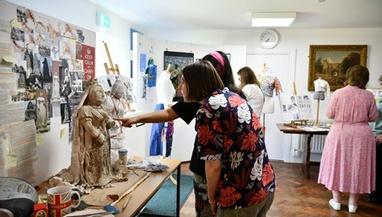
A Level Textiles has given me the freedom to experiment with materials, techniques and concepts, allowing me to push creative boundaries and develop my own design identity
A R T & D E S I G N

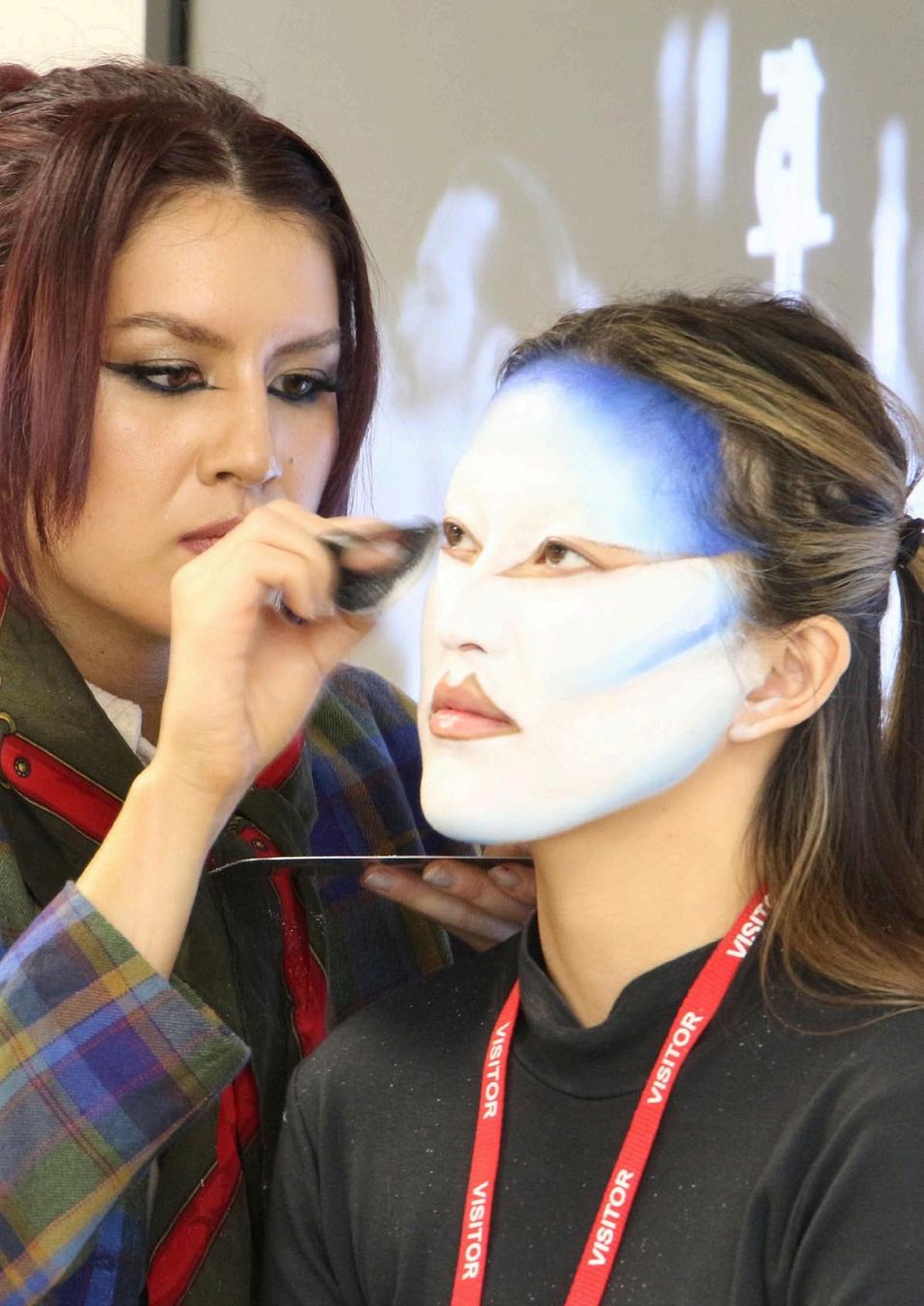
O U R S E
H E
A R T : B E Y O N D
10-minute presentation on a work of art, architecture, or an artefact of your choice
university
& V I S U A L A R T S
A R T , D E S I G N



I have always loved Biology but dissecting a heart has made me even more excited to pursue a career in Medicine Exam Board: Eduqas - Exam Code: A400
B I O L O G Y

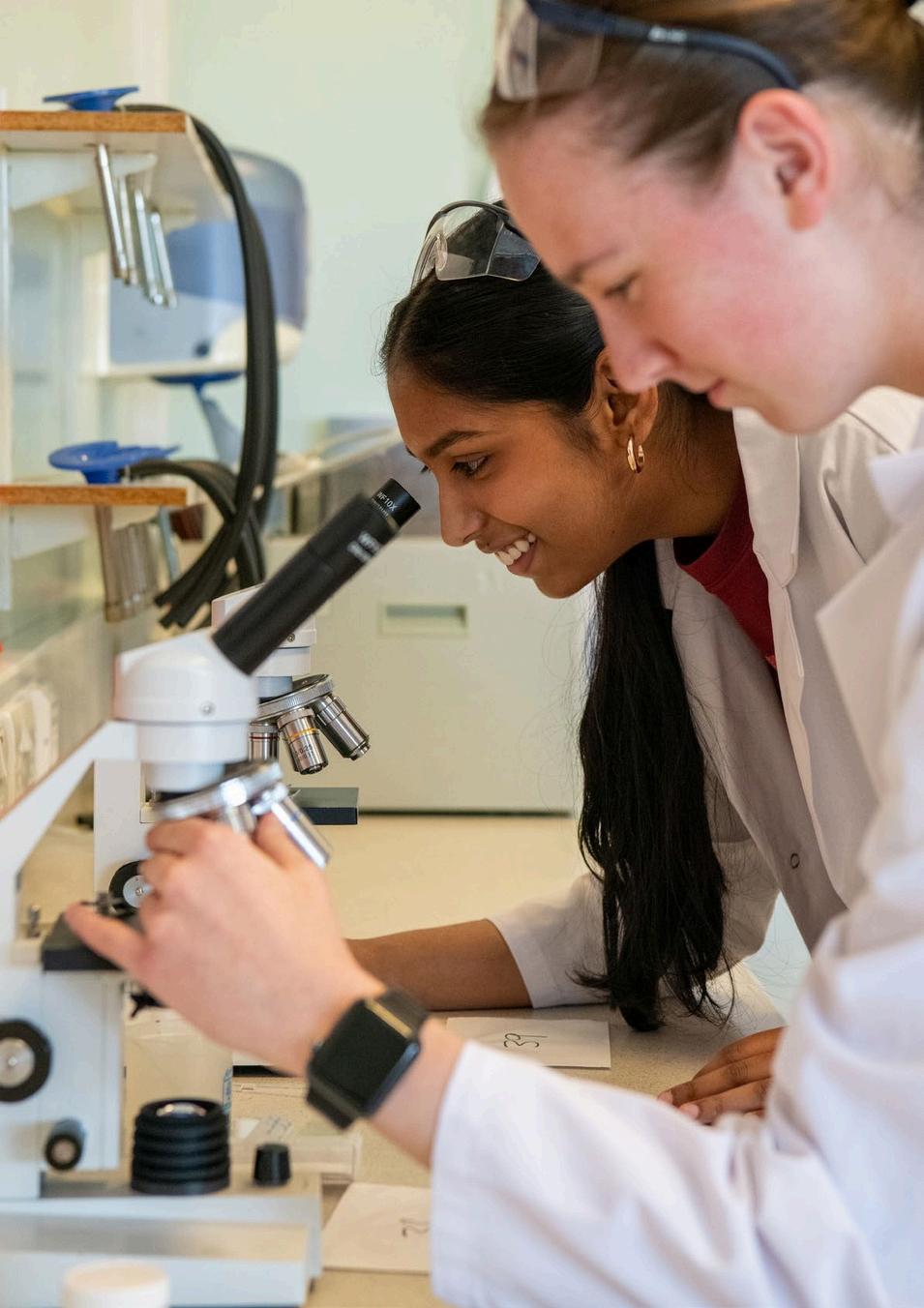
U S I N E S S M A N A G E M E N T
Board: AQA - Exam Code: 7132

I enjoy that the lessons are discussionled Talking about real life examples and linking them to business helps us understand things better and allows us to see that what we are learning is present in the real world
B U S I N E S S M A N A G E M E N T

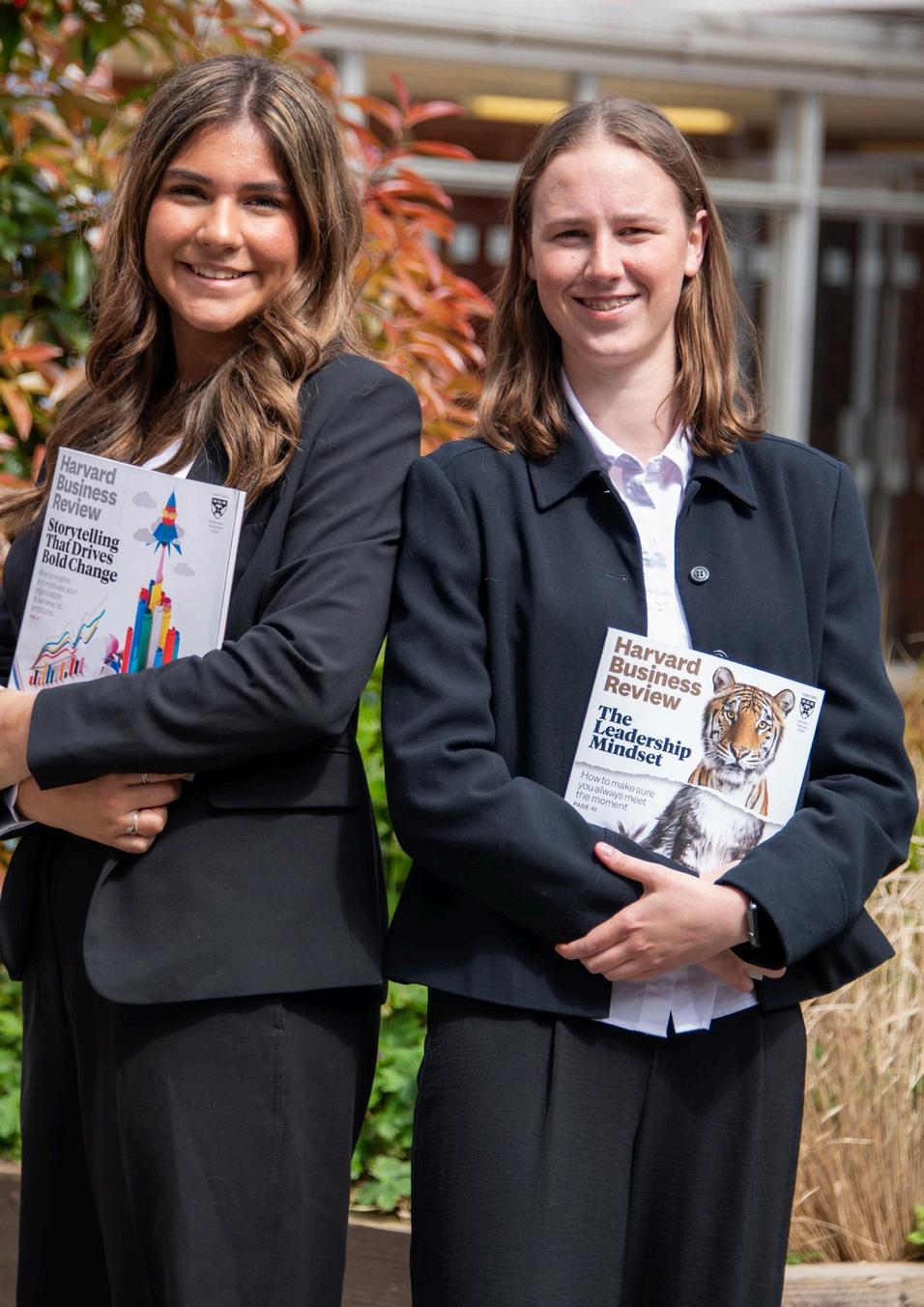
C H E M I S T
ExamBoard:OCR-ExamCode: H432

Competition
Competition
Taking Chemistry at A Level is like learning a secret language that connects all other forms of science
C H E M I S T R Y


100% -

L A S S I C
C I V I L I S A T I
Exam Board: OCR - Exam Code: H408
their encounters with monsters and Gods in Homer’s ‘Odyssey’ and Virgil’s ‘Aeneid’ literature of the time Theatre associated with them Games support analysis and argument
Classics takes the best parts of history and ancient languages and combines them – it’s so much fun!



C L A S S I C A L C I V I L I S A T I O N
Exam Board: OCR - Exam Code: H444

L A S S I
R E E K
and Verse Set Texts
Social and historical context and analysis of stylistic features of set texts
It is so exciting to read ancient texts in their original language, particularly the Iliad which is so dramatic and cinematic
C L A S S I C A L G R E E K


20% - coursework
80% - exam
Level AS Level Certificate

S C I E N C E
Exam Board: AQA - Exam Code: 7517

I have loved having the opportunity to better understand the fundamentals of the modern world whilst developing both programming and computational skills that can be implemented in any future career I choose C O M P U T E R S C I E N C E


60% - coursework
40% - exam A Level AS Level Certificate ✔

A M A & T H E A T R E
Exam Board: Pearson Edexcel - Exam Code: 9DRO
D R A M A & T H E A T R E



C O N O M I
Economics isn’t just a subject it’s a lens through which to view the world ExamBoard:OCR-ExamCode:
E C O N O M I C S


20% - coursework
80% - exam A Level AS Level

E N G L I S H L I T E R A T U R E
Exam Board: Pearson Edexcel - Exam Code: 9ET0
I love the privilege we have in following what fascinates us - I had a great amount of freedom to explore the areas which really interest me

E N G L I S H L I T E R A T U R E


Exam Board: AQA - Exam Code: 7993

100% - coursework
R O J E C T Q U A L I F I C A T I O N
E X T E N D E D
E X T E N D E D P R O J E C T Q U A L I F I C A T I O N


50% - coursework
50% - exam

S C I E N C E & N U T R I T I O N
Exam Board: WJEC - Exam Code: 4563QC Certificate
As a curious person, I really enjoy the food science elements of the course It is similar to GCSE Food, just a step on with different things to learn every week
F O O D S C I E N C E & N U T R I T I O N


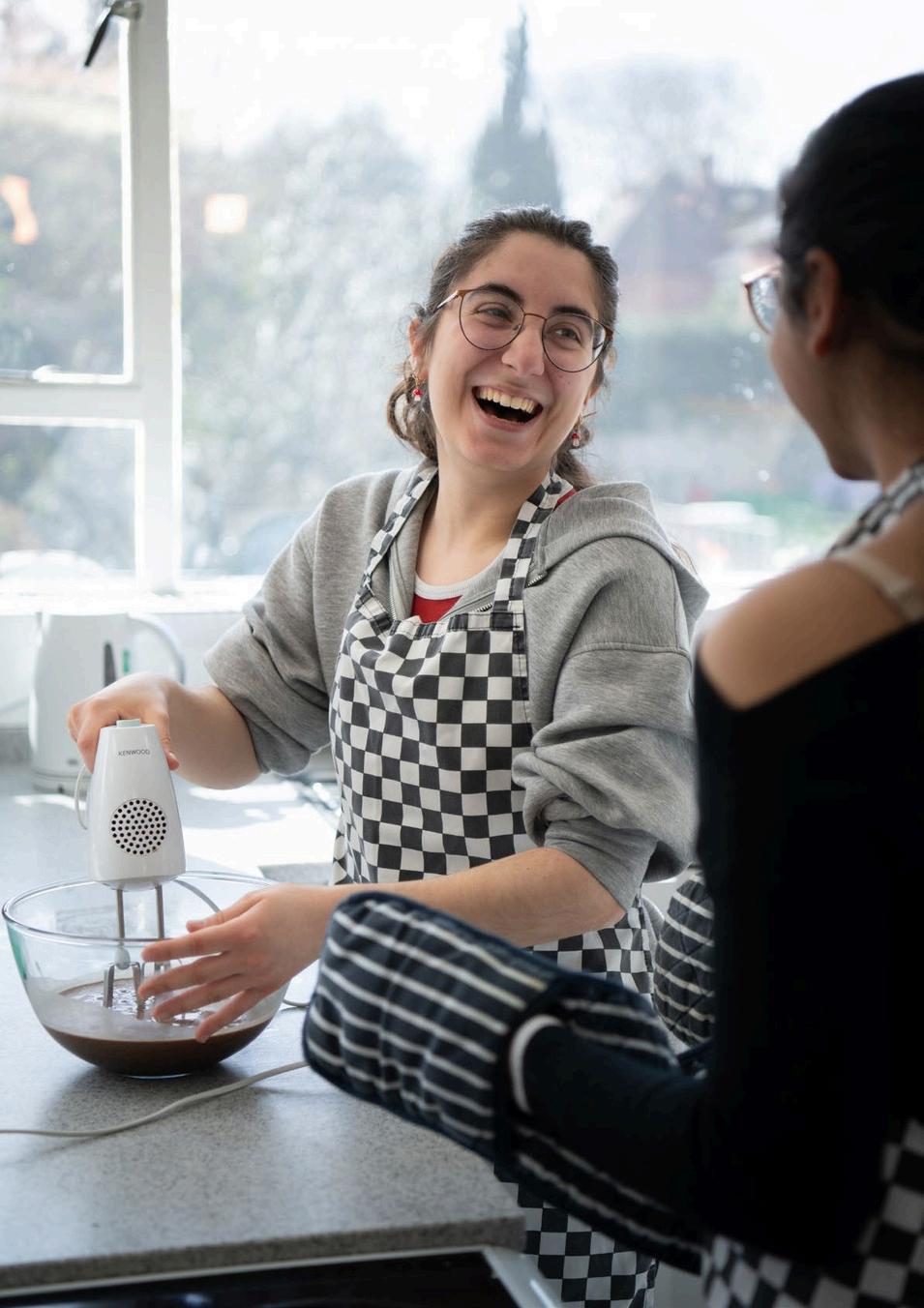

Exam Board: AQA - Exam Code: 7652
Delve into the culture of French speaking countries and explore topical issues affecting the francophone world, broadening your horizons to another way of thinking and behaving You will develop a detailed understanding of what makes the culture of French speaking countries both unique and diverse, from their music or cinema to the way they treat criminals. From travelling to studying abroad, who knows where French will take you?
You will study a film and a book in French and you will also undertake an individual research project on a topic which relates to a Frenchspeaking country which interests you Alongside this, you will cover the following topics:
Aspects of French-speaking society: current trends
– The changing nature of family
– The cyber-society
– The place of voluntary work
– Artistic culture in the French-speaking world
– A culture proud of its heritage
– Contemporary francophone music
– Cinéma: the 7th art form
Aspects of French-speaking society: current issues
– Positive features of a diverse society
– Life for the marginalised
– How criminals are treated
Aspects of political life in French-speaking world
–
Teenagers- the right to vote and political commitment
– Demonstrations and strikes - who holds the power?
– Politics and immigration
Paper 1 - Listening, Reading and Writing (50%):
2 hours 30 minutes written exam paper
Paper 2 - Writing essays on the film and novel studied (20%):
2 hour written exam paper.
Paper 3 - Speaking presentation and discussion of a theme (30%):
21-23 minutes (including 5 minutes preparation time)
– International Trip: Nice/Paris/Bordeaux
– Club Actualité francophone: a weekly current affairs club in which French speaking countries are analysed and discussed
– Webinar on the film studied
– Alumnae webinars
– Music, writing and translating competitions
The course fosters a range of soft skills which are very much in demand in a global world These include communication, critical thinking, research skills and creativity, which will open doors on the job market
Careers include:
– Translator
– Journalist
– Diplomat
– Marketing Specialist
– Lawyer
– Civil Servant
Complementary
– German
– Spanish
– English Literature
– Classics
– Business
– Economics
– History
– STEM subjects
Grade Guidelines
A guideline minimum GCSE grade 7 in French is recommended
A love of French culture and film will also be of great benefit
My personal highlight has been the in-depth analysis of the literature as well as discovering culture across the French-speaking world - it has been really enjoyable!

F R E N C H


20% - coursework
80% - exam
A Level AS Level Certificate

E O G R A P H Y
Exam Board: AQA - Exam Code: 7037
Enrichment
In Geography I’ve learned to make synoptic links. I’ve been inspired to connect the dots between different cultures, ecosystems, and societies….it is an essential tool for shaping our future



G E O G R A P H Y

The trip to Berlin reinforced my knowledge and reminded me that I am part of a global community

G E R M A N


20% - coursework 80% - exam

I S T O R Y
It’s really exciting to be at the stage in my coursework where I can make my own comparisons between historians’ works, questioning and comparing different perspectives, without simply following what the textbook tells me

H I S T O R Y


Exam Board: OCR - Exam Code: H443

I love those moments of revelation when I realise where modern words come from and even deducing the meaning of an English word from Latin.

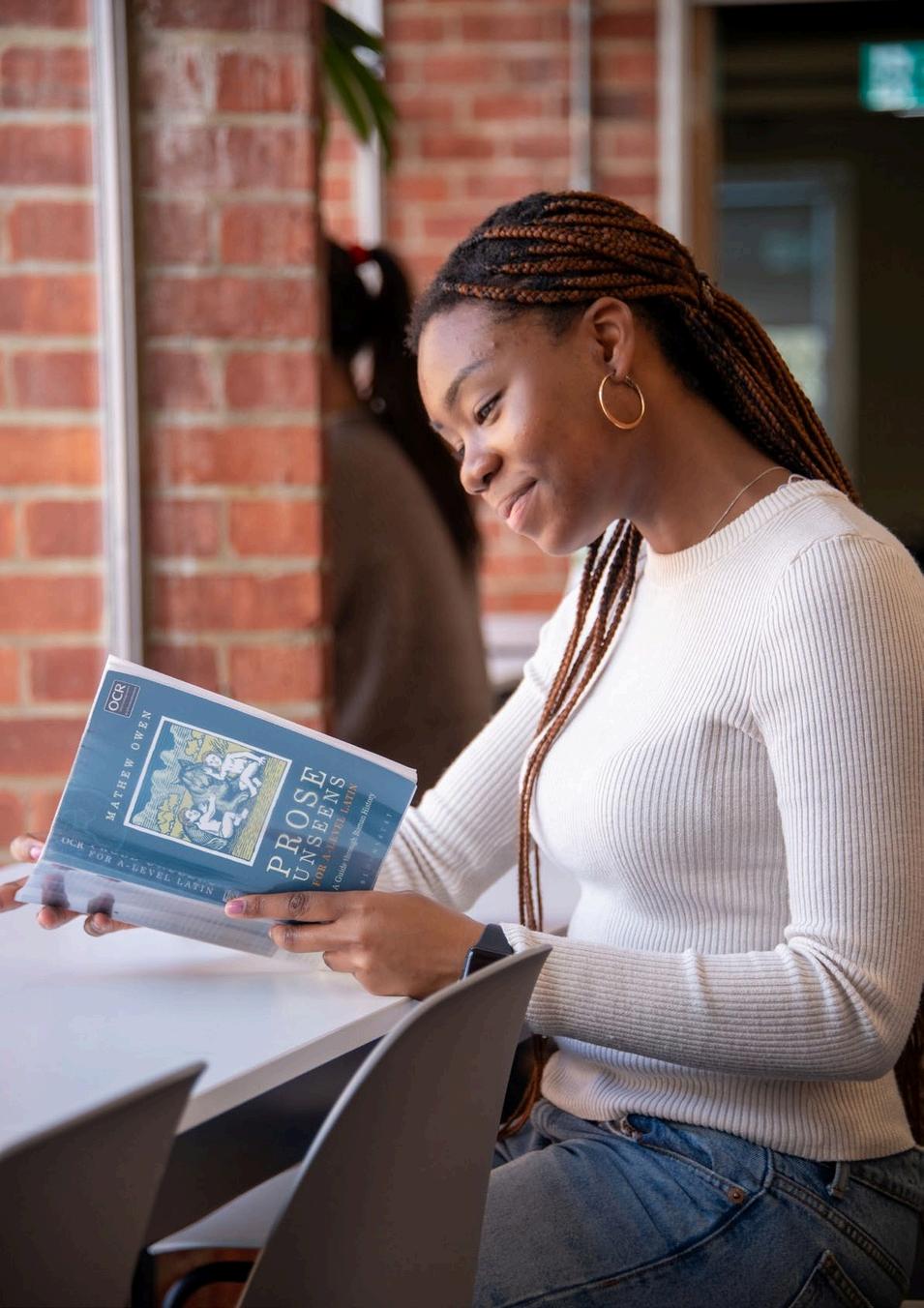


M A T H E M
Maths helps me to understand real world concepts and challenges me to solve problems. It has been beneficial to all my other science subjects.



M A T H E M A T I C S
M A T H E M A T I
Exam Board: OCR (B MEI) - Exam Code: H645


Further Mathematics has been an excellent experience, introducing me to some more interesting mathematics, and learning more advanced calculus and trigonometry has also made my regular mathematics stronger F U R T H E R M A T H E M A T I C S



60% - coursework
40% - exam
A Level AS Level Certificate ✔ ✔
Grade Guidelines
A guideline minimum GCSE grade of 7 in Music is recommended. Students should also be performing at grade 5 or above in their chosen instrument, and have grade 5 music theory.
Having my composition coursework performed by the school’s 65-piece Symphony Orchestra was thrilling. It was an exciting challenge which developed and extended my musicianship and significantly boosted my self-esteem
A really inspiring experience which will remain with me long into the future



40% - coursework
60% - exam
Level

S I C
E C H N O L O G Y
Exam Board: Edexcel - Exam Code: 9MT0
M U S I C T E C H N O L O G Y


H I L O S O P
Exam Board: AQA - Exam Code: 7172

I love the open and non-judgemental atmosphere in class, which encourages me to discuss my views and develop my critical thinking.
P H I L O S O P H Y


30% - coursework
70% - exam
A Level AS Level Certificate ✔ ✔

H Y S I C A L E D U C A T I O N
Exam Board: AQA - Exam Code: 7582

From sports psychology to biomechanics, I always find a way to apply theory to sporting examples. The freedom I have in lessons makes the subject feel personalised which helps me to improve P H Y S I C A L E D U C A T I O N


H Y S I C S

Learning about the small particle accelerator at CERN and the huge magnets needed to bend the path of the protons was a real highlight! Seeing the real world application of the syllabus in a research context was very cool!!
P H Y S I C S



O L I T I C S
Politics has opened my eyes to the political environment and allowed me to think for myself I’ve learned how to understand the world better and my place in it



S Y C H O L O
P S Y C H O L O G Y


P A N I S H
ExamBoard:AQA-Exam Code: 7692

The incredible opportunity to spend a week in Spain enriched my understanding of the culture and was a lot of fun!
S P A N I S H



Art - Fine Art
Art - 3D Art
Art - Textiles
Biology
Business
Chemistry
Classical Civilisation
Classical Greek
Computer Science
Drama and Theatre
Economics
English Literature
French Geography
German
History
Latin
Mathematics
Further Mathematics
Music
Music Technology
Philosophy
Physical Education
Physics
Politics
Psychology
Spanish
This page showcases the diverse journeys of our alumni - from GCSEs to successful careershighlighting how their choices shaped their futures
GSCE A LEVEL UNDERGRAD POSTGRAD CAREER
Art, Biology, Chemisty,
English Lang, English Lit, German, Geography, Maths, Music, Physics, Religious Studies
Biology, Chemistry, English Lang, English Lit, French, Geography, Maths, History, Music, Physics, Relgious Studies
Drama, English Lang, English Lit, German, Georgraphy, Maths, Relgious Studies, Science Double

English Lang, English Lit, Maths, Physics, Chemistry, Biology, German, Geography, History, Religious Studies
Art, Biology, Chemistry, Computing, English Lang, English Lit, French, Geography, Maths, Physics, Relgious Studies
Maths, Chemistry, Physics, Biology, Geography, Art, French, English Lang, English Lit
Chemisty, Further Maths, Maths, Physics
Associate Mechanical EngineerArtificial Limb Designer -
MEng Mechanical & Aerospace Engineering
Biology, Chemistry, Computing, English Lang, English Lit, German, Physics, Religious Studies, Latin, Maths
Biology, Geography, Maths
BA Geography
Economics, Psychology, English
BSc Business with Industrial Experience
MS Environmental Development Graduate Environmental Consultant
Operating Systems Channel Account Manager -
Geography, History, Maths
BA Archaelogy and History
MA Law Litigation Paralegal
R E A L W O R L D P A T H W A Y S
Biology, Chemisty, Maths, Further Maths
BSc Psychological and Behavioural Sciences
Assistant Psychologist -
Maths, Chemistry, Art
MEng Chemical Engineering Management Consultant -
Maths, Computing, Physics, AS Further Maths
BSc Computer Science
Software Engineer -

Scan for more information about The Abbey Sixth Form

